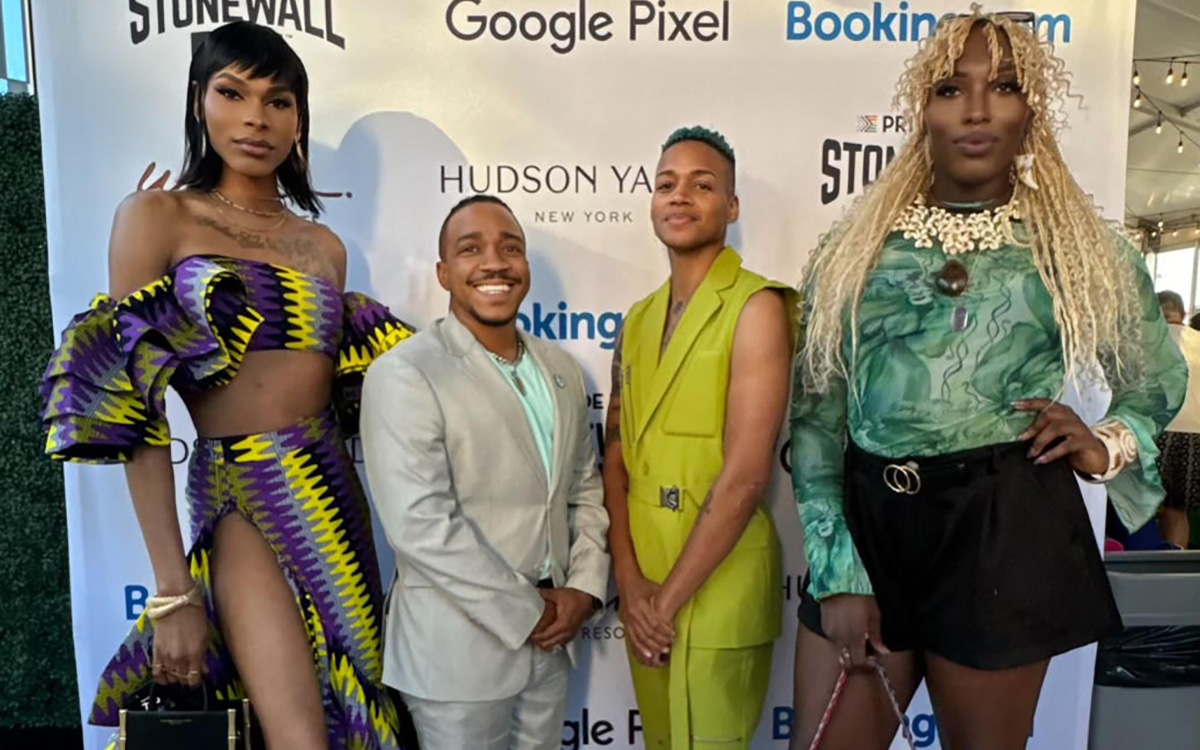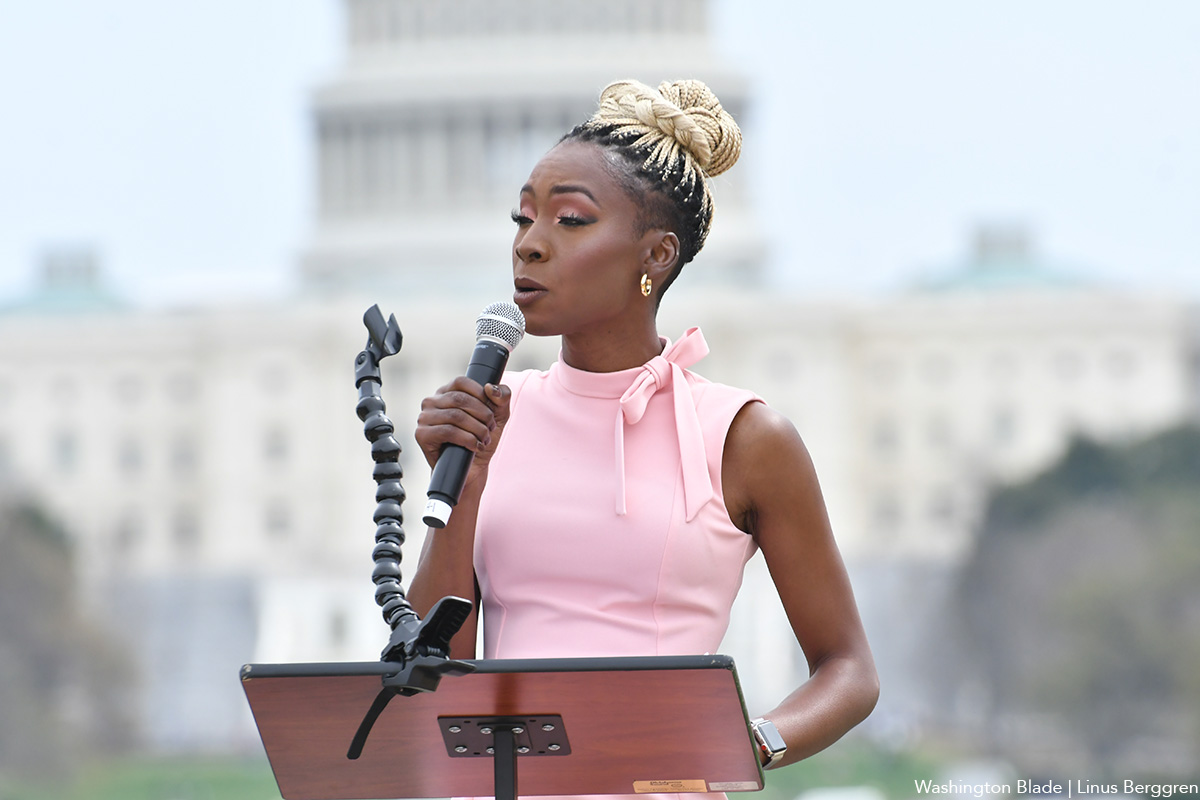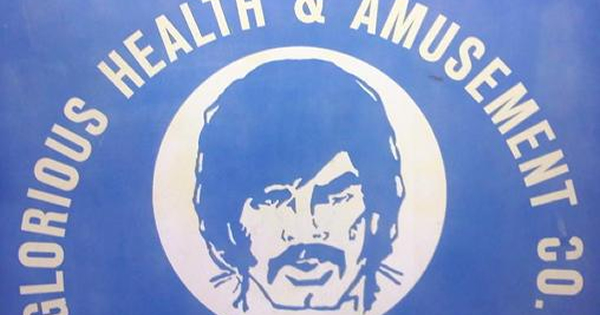National
In reversal, same-sex marriage advocates playing offense
After years of fighting anti-gay forces, has the tide turned?

The issue of same-sex marriage has returned to the national stage in an unprecedented way as numerous states throughout the country are seeing action on the issue.
In the past week, several states have seen developments on marriage. Washington Gov. Chris Gregoire signed into law marriage legislation, while New Jersey Gov. Chris Christie vetoed a similar bill that reached his desk. The Maryland House voted to approve marriage legislation by a vote of 72-67, clearing what is seen as the most difficult hurdle in getting the legislation to Gov. Martin O’Malley’s desk.
A surprise development in Hawaii was also announced on Wednesday. According to Hawaii News Now, Gov. Neil Abercrombie (D) announced he would no longer defend in court a state constitutional amendment prohibiting same-sex marriage against federal legislation, while Health Director Loretta Fuddy said she’d continue defending the amendment.
These actions come on the heels of a three-judge panel of the U.S. Ninth Circuit Court of Appeals ruling against the constitutionality of Proposition 8, California’s ban on same-sex marriage. Anti-gay forces this week appealed the ruling to the full appellate court.
The issue is also at the ballot. Advocates in Minnesota and North Carolina are working to beat back anti-gay marriage amendments, while advocates in Maine are preparing to push the first ever pro-marriage equality ballot in their state.
Meanwhile, anti-gay forces continue threatening to take away marriage rights in New Hampshire through repeal legislation.
M.V. Lee Badgett, a lesbian professor of economics and director of the Center for Public Policy & Administration at the University of Massachusetts, Amherst, said she’s struck by “the tipping of the balance toward the proactive and positive side” of the debate on same-sex marriage.
In previous years, the issue of same-sex marriage has predominately seen activity in terms of anti-gay marriage ballot initiatives that — with the exception of Arizona in 2006 — have all been approved by voters, but that situation has changed.
“In four states, the marriage equality forces are on the offensive, with one new victory and others in sight,” Badgett said. “In a fifth, New Hampshire, the effort is more defensive to preserve an earlier win, and a sixth, Maine, is led by people determined to get back the right granted by the legislature but taken away by voters.”
Badgett, also research director at the Williams Institute at the University of California, Los Angeles, noted only two states, North Carolina and Minnesota, have situations “like the ‘old’ model” of efforts to institute a ban on same-sex marriage in state constitutions.
“That political progress is very likely to reflect a growing cultural acknowledgement that same-sex couples can have the same kind of loving, committed relationships as different-sex couples, so they should also have the same right to marry,” Badgett said.
The issue is already playing out in the 2012 presidential election as the candidates vying for the nomination have adopted positions against marriage equality as part of their campaigns.
Just after the marriage legislation was signed in Washington, former U.S. Sen. Rick Santorum made a campaign appearance in the state, saying Gregoire’s signature isn’t the “final word” and urging opponents of same-sex marriage to take action. Anti-gay forces have the opportunity to bring the measure to the ballot if they collect 120,577 petition signatures and deliver them to state officials before the June 6 deadline.
Former Massachusetts Gov. Mitt Romney has taken an interest in the marriage issue as well. Prior to the New Hampshire primary, he said he supports the repeal of the same-sex marriage law in the state. Both Romney and Santorum have also decried the Ninth Circuit panel’s ruling against Proposition 8 in California.
But what about President Obama? Sixteen months after first saying he could “evolve” on the issue, the president has yet to publicly endorse same-sex marriage, despite other work his administration has done on behalf of same-sex couples, including calling for repeal of the Defense of Marriage Act and declaring the anti-gay law unconstitutional.
Last week, White House Press Secretary Jay Carney said on Air Force One that he wouldn’t weigh in on individual states’ actions on marriage and reiterated comments he previously made on the issue, saying Obama believes states should decide the issue and the president opposes taking away already established rights from couples.
“I would say only broadly, as I have said in the past, without weighing into individual states and their actions, that this president strongly supports the notion that the states should be able to decide this issue, and he opposes actions that take away rights that have been established by those states,” Carney said.
Pressed on whether Obama is still evolving on same-sex marriage, Carney said has “no update” on Obama’s views on the matter.
Richard Socarides, a New York-based LGBT advocate and former president of Equality Matters, said Obama should endorse same-sex marriage before Election Day.
“I do still believe it’s a good idea politically and I do still believe that he will cross that path and end up announcing his official support for it, but beyond that I don’t have any serious predictions,” Socarides said.
Socarides said an endorsement from Obama would energize progressive Democrats in an election year and “remind them that he’s a president who stands strongly” with the LGBT community as well as increase the support among the majority of Americans who support same-sex marriage.
Additionally, Socarides said anyone who wouldn’t support Obaman because he endorsed same-sex marriage wouldn’t support the president anyway in an election.
“He kind of has the worst of both worlds now because no one thinks he doesn’t support same-sex marriage, and the people who want him to be more vocal in this regard aren’t satisfied,” Socarides said.
LGBT advocates are also seeking help from the Democratic National Committee on the issue of same-sex marriage on two fronts: an endorsement of same-sex marriage in the Democratic Party platform, which will be issued in the fall, and financial resources to assist pro-LGBT advocates with ballot measures in the various states.
Last week, Freedom to Marry launched a campaign to encourage members of the Democratic Party platform drafting committee to adopt an endorsement of same-sex marriage in the document as well as support for measures overturning DOMA and opposition to anti-gay marriage amendments. As of Wednesday, the organization’s petition had 15,528 signatures.
The proposed platform language has already seen endorsements from House Minority Leader Nancy Pelosi (D-Calif.), co-chairs of the Congressional Progressive Caucus Reps. Keith Ellison (D-Minn.) and Raul Grijalva (D-Ariz.), and, just this week, Emily Tisch Sussman, executive director of the Young Democrats of America.
During a news conference last week, Pelosi expounded upon her endorsement of adding marriage equality to the Democratic Party platform.
“What I, as one person, say that I support, is not necessarily what the consensus document of the platform is, so I was just talking about me when I said that,” Pelosi said. “In fact, in my platform in 1982, it was a midterm platform for our convention in California. We respected the definition of ‘family’ that worked for people, where they found their support, their loving system, and their opportunity to raise a family or to be a family.”
As for contributing money to the fight for same-sex marriage at the ballot, the DNC has made no announcement about financial contributions to pro-LGBT forces in states where it’ll be an issue. According to The Advocate, Jeremy Kennedy, campaign manager for the Coalition to Protect All North Carolina Families, had a meeting with DNC officials to ask for help in defeating the anti-gay marriage amendment in North Carolina, but hasn’t heard a response.
The DNC didn’t respond on short notice to the Blade’s request for comment. During an LGBT fundraiser in D.C. in October, DNC chair Debbie Wasserman Schultz told the Washington Blade she’d “certainly consider” spending money to combat anti-gay constitutional amendments.
In a separate interview in January, Wasserman Schultz deferred to the platform committee on whether same-sex marriage will be included in the Democratic Party platform, although she said she’s supports marriage equality.

It is common knowledge that women earn 84% of the average worker. Less common knowledge? Trans women earn 60% of the average worker. Trans men and non-binary people come in at around 70%, while 16% of all trans people make less than $10,000 annually.
E.C. Pizarro was lucky, and he knew it. He had a BFA in graphic design and had taught himself how to code. As a stealth trans man in a corporate job, he had access to a stable wage and good benefits. “People that do not have experiences in corporate America or with equitable employment don’t realize [these things] are privileges that a lot of people don’t have access to.”
He wanted to give back and was gearing up to bring more volunteer work into his life by participating in a fraternity for trans men. When he went to a TransTech event and learned about the educational and career resources for trans people who face barriers to entering the workforce, he knew he had found his place.
At the event he met, Angelica Ross. Yes, that Angelica Ross, of “Pose” and “American Horror Story.”
Before she was Candy, Ross was a self-taught coder. She went from posing for an adult website to doing its back-end coding to teaching her trans siblings how to succeed in tech.
“Technology was the key to my freedom,” Ross said in an interview with The Plug. “Technology took me from being exploited on someone’s website to building my own websites and to building websites for other people and getting paid to do so.”
Pizarro was impressed and wanted to help. “I went up to Angelica and I was like ‘Hey, I’m a trans man. These are my skills. I’m down to volunteer and do any type of work—the one caveat is that I’m stealth. You can’t tell anybody that I’m trans.’”
For four years, Pizarro helped from mostly behind the scenes, sometimes getting side-eyed since people thought he was a cis man in trans spaces. “I was still stealth as the Director of Social Media and Communications for the National Trans Visibility March in 2019,” Pizarro says, chuckling a little.
But by that point, Ross — who headlined the 2019 march — was overextended trying to balance being a world-famous actress, advocate, and businesswoman.
She needed someone to step in as executive director of TransTech and looked to the group of dedicated volunteers. Pizarro was elected by his peers to take the reins of the organization.
This was a turning point for Pizarro. “I’m very passionate about tech and for me a small sacrifice of being open with my trans experience to liberate other trans people,” he said. “I felt like if that’s something I got to do, then I’m gonna do it.”
And he did it. The infrastructure Ross put together worked: with mentorship, education, community, and networking with trans-accepting employers, trans people were gaining financial security and independence.
So, Pizarro focused on expanding TransTech as widely as possible. “We have grown exponentially over the last three years,” he says. “When I took over in 2021, we had about 800 members based in the United States. Now we support over 6,700 members across 50 countries.”
TransTech is filling a demonstrated need within specifically the trans community. New research from LGBT Tech found that 68% of transgender adults use the internet to find LGBTQ-friendly employment (compared to 38% of cisgender LGBTQ+ adults). More than 70% of all LGBTQ adults use the Internet to access educational content.
Accessibility is central to the TransTech programming. Despite the growth, everything remains free. “There’s no membership fee. All of our programming is free. All of the certifications and educational resources are free,” Pizarro says.
They know the financial burden the trans community faces — 29% of trans adults live in poverty. “If we’re asking anyone to up-skill [for a cost] and these are the things they are going through, we are asking them to invest in their future versus their meal today.”
Pizarro believes that accessibility is more than just making the training free. He wants the community to understand that tech work is something they are innately capable of doing.
“TransTech was built on the foundation of nontraditional tech. It’s not always coding. It’s graphic design. It’s social media. It’s video editing. It’s anything that uses a piece of technology and nowadays almost everything uses a piece of technology,” says Pizarro.
He emphasizes to participants: “You’re in tech and you don’t even know it,” pointing out how many already utilize tech skills like marketing and monetization with their social media accounts.
Some people involved in the programming are nervous about entering the “tech world” because of headlines about tech layoffs. He makes sure to emphasize that unlike in some other jobs, tech companies often pay generous severance packages, which gives employees “breathing room.” Pizzaro explains that “once you have experience with one tech company, you can go someplace else and make a substantial amount of money as well.”
While TransTech is designed for the gender-diverse community, the programming is open to everyone Pizarro explains. “We just ask that you don’t be transphobic.” (Or any of the other -phobics too, he says, listing them off.) He also emphasizes that this allows trans members who are not out to comfortably participate.
Pizarro wants everyone to understand that they don’t just belong in tech, but they make tech better. “Tech is most profitable when you have diverse people building the tech and using the tech,” Pizarro says. “There is an intentional funding as well as support to diversity tech because they understand how that impacts the product.”
He also reminds participants that they have developed transferrable skills in every part of their lives. “I like to tell people if you can manage your life as a trans person in the United States or anywhere you can manage a project.”

District of Columbia
Fire by arson forced temporary shutdown of Glorious Health Club
Spa and art gallery catering to gay
men expects to reopen in August

In a little noticed development, D.C.’s Glorious Health Club, which bills itself as a spa, art gallery, and community center catering to gay men, was forced to close on May 19 after one or more unidentified suspects ignited a fire inside the club that D.C. fire department officials have ruled an act of arson.
Robert Siegel, the club’s owner, told the Washington Blade that he and investigators with the D.C. Fire and Emergency Medical Services Department believe one or more yet unidentified suspects broke into the kitchen of the former warehouse building where the club is located at 2120 West Virginia Ave., N.E.
According to Siegel, investigators with the fire department’s arson squad believe a flammable liquid was used to start the fire in the kitchen and in two other locations within the building.
“Three separate fires were started,” Siegel said. “They started one on a staircase and one on the upstairs storage area,” he said in addition to the one in the kitchen. He said about 40 patrons were in the club at the time the fire started, and all were able to leave without injury.
Siegel said the fire caused $500,000 worth of damage to his building, with some of the damage caused — understandably he said — by fire fighters who had to rip open doors and break through the roof to gain access to the flames that engulfed parts of the interior of the building. He said he arranged for repair work to begin after the fire was extinguished.
“I expect we’ll be reopening in about a month from now,” he said. “And we’ll be a bigger and better place.”
Fortunately, Siegel said, most of the artwork and art exhibits located in the club were not damaged.
“It was basically the kitchen, patio, and the roof,” he said, adding that much of the solar panels he had on the roof were destroyed by the fire or by firefighters seeking to gain access to the building.
“And the fire was so hot it did structural damage to the roof,” he said. “It actually melted steel. We’re talking about 50-foot steel beams that have to be replaced,” he told the Blade. “That’s $100,000 right there.”
Vito Maggiolo, a spokesperson for the D.C. Fire and Emergency Medical Services Department, said the fire was “ruled incendiary/arson” and is “under active investigation.”
It could not immediately be determined if one or more people responsible for the fire targeted the Glorious Health Club because it’s a gay community establishment.
National
House Republicans propose steep cuts in federal AIDS budget
Advocacy groups say move would eliminate ‘Ending HIV Epidemic’ initiative

The Republican-controlled U.S. House Subcommittee on Labor, Health, and Human Services, Education, and Related Agencies approved a spending bill on June 26 that calls for cutting at least $419 million from federal AIDS programs that AIDS activists say would have a devastating impact on efforts to greatly reduce the number of new HIV infections by 2030.
The subcommittee’s proposed bill, which includes billions of dollars in cuts in a wide range of other federal health, education, and human services related programs, is scheduled to be considered by the full House Appropriations Committee on July 10. Officials with AIDS advocacy groups say they are hopeful that the full committee, like last year, will refuse to approve the proposed cuts in the AIDS budget.
The proposed GOP cuts would eliminate $214 million from the U.S. Centers for Disease Control and Prevention’s HIV prevention programs, $190 million from the Ryan White HIV/AIDS Program, and $15 million from the Department of Health and Human Services Secretary’s Minority HIV/AIDS Program.
Activists say the impact of those cuts would kill the federal government’s Ending the HIV Epidemic initiative, which among other things, calls for reducing the number of new HIV infections in the U.S. by 75 percent by 2025 and by 90 percent by 2030. The activists point out that ironically the Ending the HIV Epidemic initiative was launched during the administration of President Donald Trump.
“Instead of providing new investments in ending HIV by increasing funding for testing, prevention programs, such as PrEP, and life-saving care and treatment, House Republicans are again choosing to go through a worthless exercise of cutting programs that the American people depend on and will never pass,” said Carl Schmid, executive director of the HIV + Hepatitis Policy Institute.
“While we vigorously fight these cuts, we look forward to working with the entire Congress in a bipartisan fashion on spending bills that can actually become law,” Schmid said in a statement.
Schmid noted that the bill also includes provisions known as “policy riders” that would take away rights and protections from women, such as access to birth control and abortion, and for minorities, including LGBTQ people.
According to a statement released by the office of Rep. Rosa DeLauro (D-Conn.), who is the ranking minority member of the House Appropriations Committee, one of the policy riders would “block the Biden administration’s policies to ensure nondiscrimination on the basis of gender identity and sexual orientation.’ The statement says another policy rider would “prevent policies or programs intended to promote diversity, equality, or inclusion.”
Most political observers believe the Democratic-controlled U.S. Senate would also kill the GOP proposed policy riders and cuts in the AIDS budget if the full Republican-controlled House were to approve the budget bill passed by the appropriations subcommittee.
Rep, Tom Cole (R-Okla.), who serves as chair of the full House Appropriations Committee, released a statement on June 27 defending the subcommittee’s bill and its proposed spending cuts. “The bill provides appropriate and fiscally responsible funding to ensure these departments can continue to perform their core missions while also acknowledging the fiscal realities facing our nation,” he said.
“Importantly, the bill pushes back on the Biden administration’s out-of-touch progressive policy agenda, preventing this White House from finalizing or implementing controversial rules or executive orders,” Cole said in his statement. “It also preserves long standing bipartisan policy provisions protecting the right to life.”
-

 Canada3 days ago
Canada3 days agoToronto Pride parade cancelled after pro-Palestinian protesters disrupt it
-

 Baltimore5 days ago
Baltimore5 days agoDespite record crowds, Baltimore Pride’s LGBTQ critics say organizers dropped the ball
-

 Politics2 days ago
Politics2 days agoHRC slams White House over position opposing gender affirming surgeries for minors
-

 U.S. Supreme Court2 days ago
U.S. Supreme Court2 days agoConcern over marriage equality in US grows two decades after first Mass. same-sex weddings









